A LSO BY T OUR
Whos Afraid of Post-Blackness? What It Means to Be Black Now
Never Drank the Kool Aid: Essays
Soul City: A Novel
The Portable Promised Land: Stories

A Division of Simon & Schuster, Inc.
1230 Avenue of the Americas
New York, NY 10020
www.SimonandSchuster.com
Copyright 2013 by Tour
This book is based on a three part lecture given by Tour for the Alain LeRoy Locke Lecture Series.
All rights reserved, including the right to reproduce this book or portions thereof in any form whatsoever. For information address Atria Books Subsidiary Rights Department, 1230 Avenue of the Americas, New York, NY 10020.
First Atria Books hardcover edition March 2013
 and colophon are trademarks of Simon & Schuster, Inc.
and colophon are trademarks of Simon & Schuster, Inc.
The Simon & Schuster Speakers Bureau can bring authors to your live event. For more information or to book an event, contact the Simon & Schuster Speakers Bureau at 1-866-248-3049 or visit our website at www.simonspeakers.com.
Designed by Maura Fadden Rosenthal
Library of Congress Cataloging-in-Publication Data
Tour, 1971
I would die 4 u / Tour.
p. cm.
Includes bibliographical references and index.
1. Prince. 2. Rock musiciansUnited StatesBiography. I. Title. II.
Title: I would die for you.
ML420.P974T68 2013
781.66092dc23
[B]
2012036623
ISBN 978-1-4767-0549-1
ISBN 978-1-4767-0554-5 (ebook)
Contents
Dearly beloved, we are gathered here today to get through this thing called life.
P RINCE
Introduction
I MAGINE A FIELD THE SIZE OF A MERICA. The field is filled with people. They represent all the people who care about American popular culture, people who feel American popular culture speaks to them and helps shape and define their lives. In the middle of the field is a stage the size of Nebraska. Many people are on the stage dancing and singing and rhyming and acting and saying, Look at me! These people represent stars in American popular culture. Then, someone comes strolling through the field toward the stage holding a large, open umbrella, even though its not raining. As this person walks onto the stage, the audience wonders, Why is he holding an umbrella? Its not raining. A moment later, it begins to rain. The rain represents the feelings of the people in the audiencetheir dreams, fears, anxieties, and longings. It adds up to the ethos of the generation. The rain is the Zeitgeist. And the person who had the umbrella open before the rain is an icon. That person knew what the generation was feeling before they really knew, before they were able to fully articulate their feelings. When the icon takes their place on the stage they dont say, Look at me! They say, When you look at me, youll also be looking at you.
Stars entertain us. Icons do something much more. They embody us. They tell us something about who we are and who we want to be. They are both a mirror and a shaping force. Zeitgeist is German for the spirit of the times, the general cultural, intellectual, and political climate within a nation, or a specific group, in a particular period. You could call it the collective consciousness of a given people at a certain time. Icons can see and feel the Zeitgeist of their generation more clearly than the rest of us. They have the antennae, the sensitivity, and the intellect to become a thermometer of their era, and they have the talent to reflect the Zeitgeist through their art. For generation X, one of those icons was Prince.

There are truths about the soul of a generation that icons can see, as if theyre mystics, because they have vision and because theyre immersed in the culture. They are in the clubs and the bars and on the streets and they have their antennae up and theyre picking up signals about whats going on in the world faster and more clearly than everyone around them. This not a skill that can be taught. Its extraordinarily difficult to make statements that will resonate deeply with several million people in your generation, but thats what icons do. They are not only mirrors, showing the generation who they are: they are connectors, bringing together a giant tribe, and sometimes they are sculptors, inspiring the generation to become something. Prince rose in the 1980s to become the mirror, connector, and sculptor of a generation, and he knew it. In 1998, I interviewed him for a cover story for Icon magazine and asked, Do you realize youve changed a generation with your music? Prince became defensive. His body stiffened. The thought of it was too much. I dont think about that, he snapped. Why would I? Theres no gain in that. Being in control of someones thoughts? Youll second-guess your writing. He didnt see the value in being conscious of his influence, but he didnt deny that it was true.
Of course, it takes more than antennae to become an icon. Prince developed every skill that would make him become a rock star. He learned how to write timeless songs in a range of genres with masterful construction. (Questlove, the drummer for the Roots who has worked with Prince, says Princes best albums were built with the dramatic structure of Shakespearean plays: rising action, comic relief, climax, and denouement.) He could sing in a unique, spellbinding way. He could play music in an unforgettable way; he was not just a guitar virtuoso but the master of many other instruments including drums, percussion, bass, keyboards, and synthesizer. He could dance in his own compelling style. He could perform with a rare intensity, and demonstrated a stage generalship that outshone all of his contemporaries except, perhaps, Michael Jackson. He had presence and was spine-tinglingly sexy if you were inclined to be attracted to him and, even if you werent, he still seemed devastatingly cool. He conveyed a sense of mystery, and had an ineffability about him that left you unable to fully sum him up or feel as though you really knew him, keeping you intrigued. All this was powered by a superhuman work ethic. He knew the importance of sweat equity as a kid. In Possessed: The Rise and Fall of Prince by Alex Hahn, a cousin reports that Prince as a young teenager told him, Im going to practice my behind off like James Browns band, and Im going to have everything so tight that youre not going to be able to say anything about it.a twenty-four-hour creative machine. If we werent on stage, we were rehearsing. If we werent rehearsing, we were in the studio. Thats why Prince, for a long time, put out an album per year while most artists were releasing one every two years, and Michael Jackson once every four years, like a president. These are albums he wrote, produced, and played most or all of the instruments on. He was legendary for working day and night, an inexhaustible music monster. As he says in All the Critics Love U In New York: Body dont wanna quit. Gotta get another hit.
Several people told me Prince often worked sessions that lasted twenty-four or even thirty-six hours. Chuck Zwicky, one of his engineers, told me, Ive always admired the diligence and discipline that Prince has and his work ethic. He just kept going and kept working until he had it. Ive had more than one forty hour day with him. Pretty intense. Hes extremely hard working and, much to the chagrin of women, hed rather spend his time working on his music than hanging out in a club. Zwicky said that Princes time in the studio was almost always spent efficiently, moving at a rapid pace compared to his music-business peers. He never spent an inordinate amount of time on one song, Zwicky said. Ive worked with artists who will agonize over a single song for many, many days. Ive never seen Prince do that. Hes got a very, very clear idea in his head about what the song needs to do, what it needs to sound like and he could get through it very quickly. So, typically, a session started with three written songs and ended with three completely mixed songs. He never second guesses himself and he never scratches his head. He never says, I wonder if this is good or not?
Next page

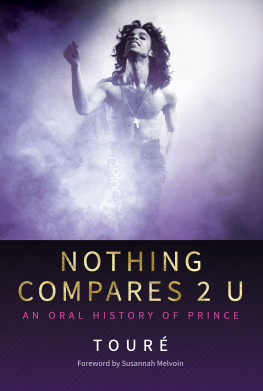

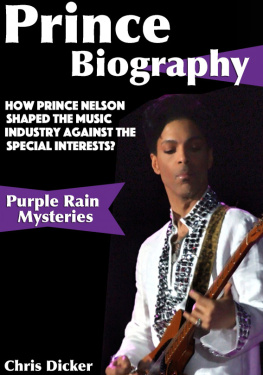
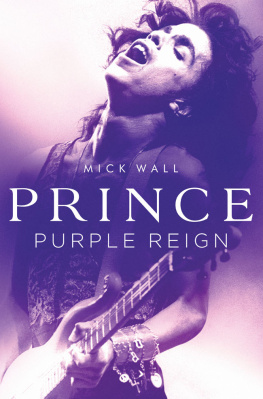
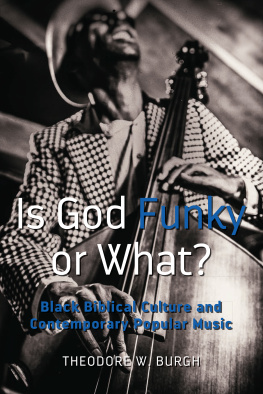
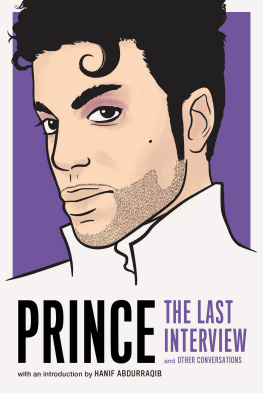
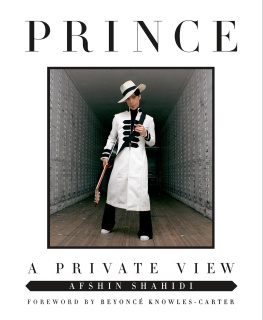
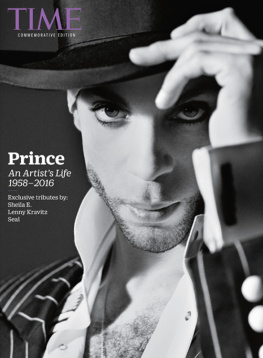
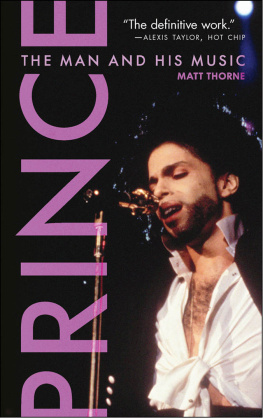


 and colophon are trademarks of Simon & Schuster, Inc.
and colophon are trademarks of Simon & Schuster, Inc.